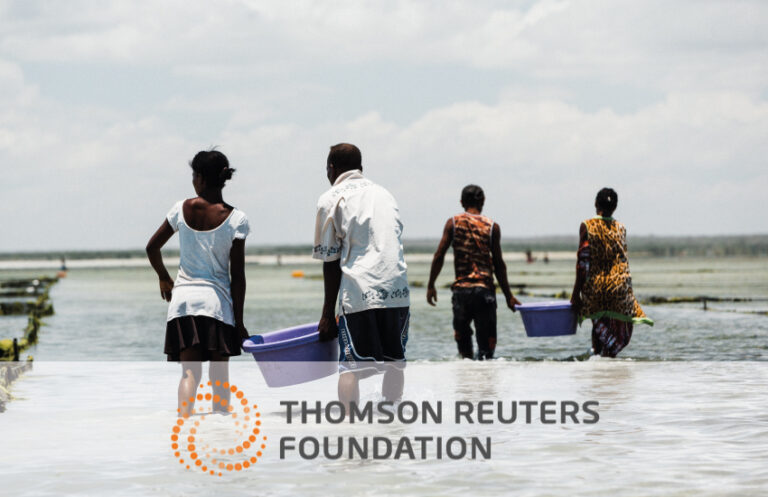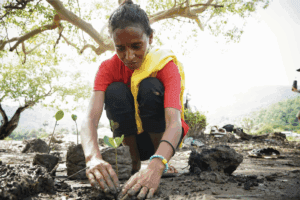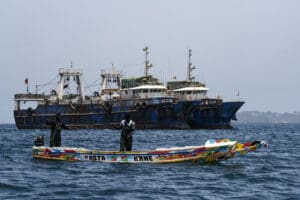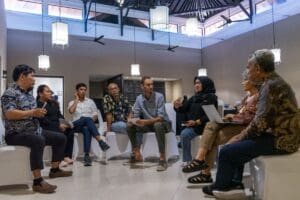The Thomson Reuters Foundation have produced a film following their visit to southwest Madagascar in 2018.
90% of global fish stocks are either overfished or fully fished, and the film begins by interviewing Vezo fishers whose livelihoods depend on their marine ecosystems.
“These days fishing is not enough to live off. Things are changing and the climate isn’t the same as it used to be.”
“It’s very important to protect the sea because it’s out main source of income. We must make sure that it’s not destroyed and everything in it is not depleted.”
In Madagascar, one of the world’s largest islands, millions living in coastal communities rely on the ocean to survive.
The Velondriake Locally Managed Marine Area (LMMA) is then introduced as one of the areas in Madagascar where coastal communities are engaging in fisheries management techniques like temporary octopus fisheries closures, and sustainable livelihood activities such as sea cucumber farming:
Madagascar’s first LMMA was set up in 2006 to prevent fishing in certain areas to allow marine life to replenish. It was named ‘Velondriake’, meaning ‘living with the ocean’.
“We’ve created reserves because in some areas there are no fish left, where people have fished too often. The octopus reserve was the first trial. Once we set it up, we saw that it was productive.”
The Velondriake LMMA has blossomed, spawning more than 100 LMMAs on the island and as far afield as Fiji and Costa Rica. Visitors have come all the way from Mexico to learn about Velondriake’s octopus reserves – areas closed to fishing to allow octopus to grow to full size, replenishing stocks and maximising catches.
“If we close a fishing area for two or three months, people can catch a lot once it’s opened for fishing again, and they can earn lots of money. That’s the benefit people get from the temporary reserve closures.”
“We are now recognised as the managers [of the LMMA], because the government have transferred responsibility to us because of the work we do.”
“We have some temporary and some permanent reserve areas. That’s why we look for alternative livelihoods such as seaweed and sea cucumber farming, and beekeeping.”
Hundreds of aquaculture farmers – many of them women – grow seaweed and raise baby sea cucumbers in ocean pens for sale to local seafood exporters. This has transformed lives as sea cucumber farmers can earn $124 a month, triple the average income in the area.
“Life was very hard before we started farming sea cucumber and seaweed,” said Nadia Rasolonaina, one of about 30 women who wade out into shallow waters to clean and monitor their pens.
“I had to leave my children with my older brother as I didn’t have any source of income. It broke my heart. Now they are back, my heart is at ease. We thank God that this project appeared.”
Read more about our work pioneering viable alternatives to fishing
Join us in Madagascar!




















